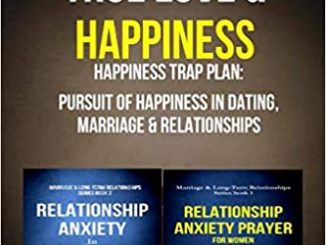
There are moments in life when love is easy and there are also difficult times when you have to reach deep inside yourself to love those that may not seem worthy.
Certain people are easy to love while others can fill your heart with anger, grief, pain and sadness.
There are times in life when the world needs more of our spirit, our souls, desire and our compassion for those less fortunate.
Loving is not an action but an attitude, it is a time for:
– giving not receiving,
– sharing not hoarding,
– letting go not holding on,
– believing not doubting,
– feeling not thinking,
– forgiving not grieving,
Love doesn’t wait and it doesn’t ask in return. Is love the answer to all of life’s concerns and challenges?
Before we get started here are the ten keys to relationship success.
1. Learn to trust your feelings.
2. Spend quality time together.
3. Touch a lot.
4. Accept your partner for who she or he is and don’t try and change them.
5. Love your partner unconditionally.
6. Listen to your partner’s real needs & fears.
7. Have fun together.
8. Have joint goals.
9. Be flexible and willing to compromise.
10. Keep the romance and passion alive regardless of how long you have been together.
11. Validate each other privately and publicly.
12. Learn to have conflict and disagreements without letting them damage each other and the relationship.
Whether you have been married for 50 years or are in the first six months of a new relationship, I will guarantee that you have experienced at least one any number of what I call relationship ruts. I know at one time or another in my life I have experienced many of them.
The question is, do you want to do something about it, or are you content to stay in a particular rut?
Every relationship, whether business or personal, is either getting better or getting worse.
Everyone is growing either by accident or by design. Those who grow by accident may refuse, fight, sabotage, or not accept the growth.
Those who grow by design purposely grow in areas where they feel it is important to improve their quality of life. This personal growth, regardless of its impetus, can better or worsen a relationship. If one person in the relationship grows by design and the other by accident, they will have different outlooks, life philosophies or attitudes about growth.
Let me give you a common example.
It is common to hear people in a relationship say, “we are growing apart,” “you are not growing,” “I am growing faster or in different areas than you are.” It doesn’t matter how this attitude is expressed, the bottom line is that both people are growing in different areas and at different rates. This is both natural and normal. No two people will ever grow in the same way, at the same time, or at the same rate.
No one has the right to expect, demand, or cause another person to grow when they are neither ready, interested nor willing to grow in a particular area. People change when they are ready and in accordance with their own agendas, reasons or time frame.
Individual growth, in order to bring positive results to a relationship, must be understood, accepted and managed by both parties. Common understanding is necessary for the relationship to survive natural shifts in feelings and attitudes and newly acquired wisdom that one or both of the people involved experiences.
Relationships become stagnant when either person refuses to acknowledge their own growth or the growth of their partner as positive, regardless of what they are learning, experiencing or feeling. Stagnant relationships are easy to spot. There is little laughter, spontaneity, respect or understanding. People stop enjoying their partner. They may even stop liking those things originally attracted them when the relationship was new. In a sense, these people have changed their mental filters. They interpret the same attitudes, behaviors, viewpoints and feelings of their partner differently and, in some cases, more negatively.
To prevent relationships from becoming less interesting or stagnant both parties must be willing to accept their partner’s growth, no matter the circumstance. Everyone is on their own personal path learning what they need to learn to move to a higher position in life.
We live in an era of increasing pressure for quick beginnings and fast endings in relationships. We are rapidly becoming a ‘throw-away’ society when it comes to the idea of developing and maintaining positive, on-going relationships. The following twenty – six concepts, when integrated into your relationships, will go a long way to help you develop nurturing, positive, long-term and satisfying relationships.
If your relationship is in a rut, it didn’t happen in one day. You can solve your problems, but it will take effort, patience and a lot of love if you are to succeed. If, however, one or both of you have “given up or given in,” there is little this book or even counseling will do to save your relationship. If your relationship is over but just waiting to “end” this book can help you prevent your next relationship from ending the same way.
Proudly WWW.PONIREVO.COM
Source by Tim Connor



